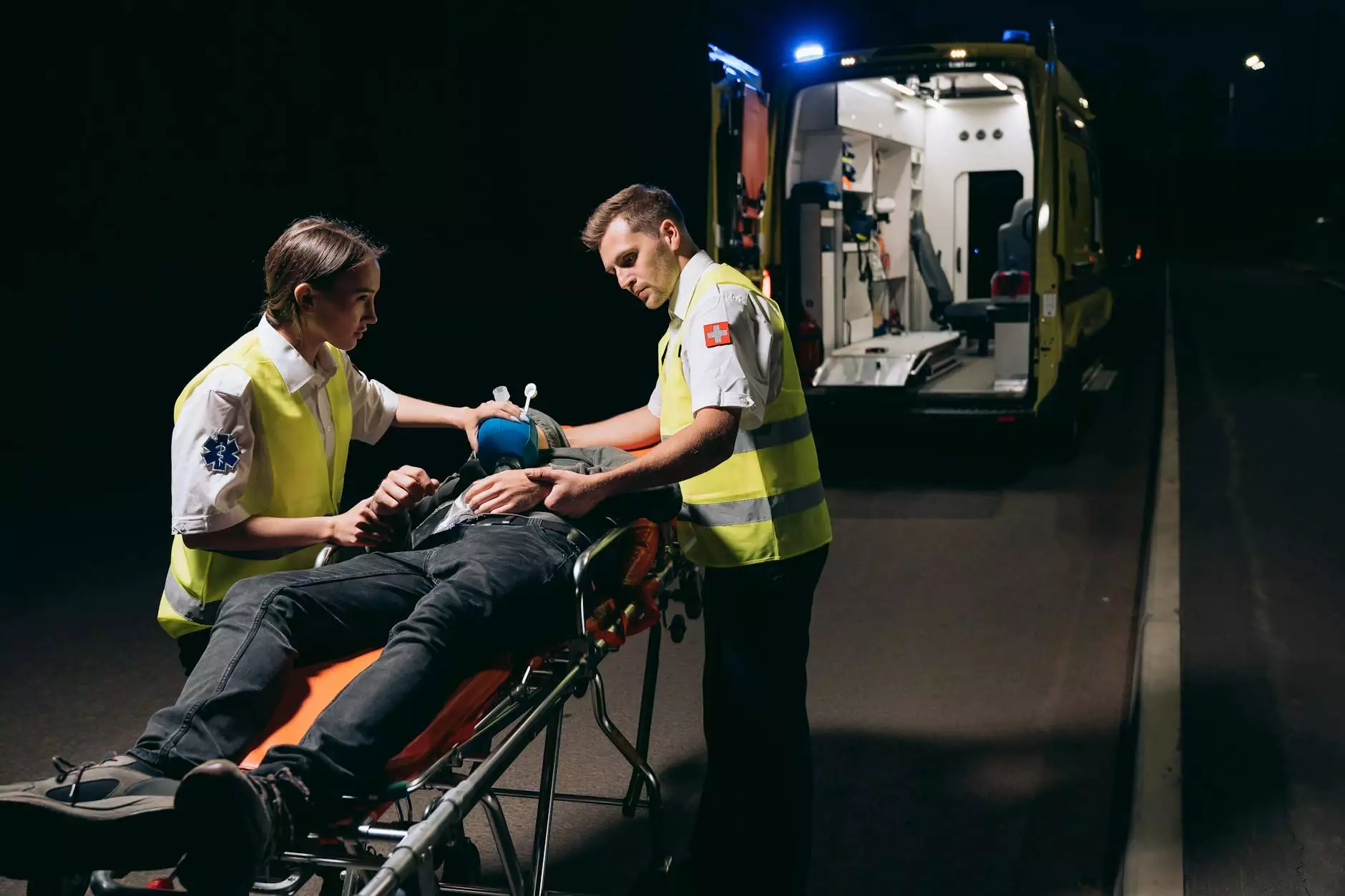The Crucial Role of an Oncology Clinic in Today's Health Landscape

In recent years, the field of oncology has undergone significant evolution, providing patients with a multitude of treatment options and support services. An oncology clinic is at the forefront of this transformation, offering specialized care tailored to the unique needs of cancer patients. This article delves into the various aspects of oncology clinics, emphasizing their importance, the services they provide, and how they contribute to patient recovery and well-being.
What is an Oncology Clinic?
An oncology clinic is a medical facility dedicated to diagnosing, treating, and managing cancer. These specialized clinics are staffed by a multidisciplinary team of healthcare professionals, including oncologists, nurses, radiologists, and social workers, all working together to provide comprehensive care.
Key Functions of an Oncology Clinic
- Diagnosis and Evaluation: Oncology clinics utilize advanced imaging and diagnostic techniques, such as biopsies, blood tests, and imaging studies, to accurately diagnose various types of cancer.
- Treatment Planning: A personalized treatment plan is developed for each patient, incorporating chemotherapy, radiation therapy, immunotherapy, or surgical options, based on the specific type and stage of cancer.
- Management of Side Effects: Oncology clinics provide support for managing the side effects of cancer treatments, which can include pain management, nausea control, and psychological support.
- Follow-Up Care: Post-treatment care is crucial in monitoring recovery and recurrence through regular follow-up appointments, surveillance tests, and supportive therapies.
Why Choose an Oncology Clinic?
Choosing to receive care at an oncology clinic rather than a general hospital can offer several advantages:
Expertise and Specialization
Oncology clinics have professionals who specialize exclusively in cancer care. Their extensive training and experience in treating specific cancer types ensure patients receive the highest quality of care.
Access to Cutting-Edge Treatments
Many oncology clinics are affiliated with research institutions and have access to clinical trials, allowing patients to benefit from the latest advancements in treatment and therapies that may not be available elsewhere.
Comprehensive Support Services
Oncology clinics often provide a complete range of support services, including nutritional counseling, psychological support, and palliative care, to address both the physical and emotional needs of patients and their families.
The Importance of a Multidisciplinary Approach
The treatment of cancer requires a coordinated effort from multiple healthcare disciplines. A multidisciplinary team at an oncology clinic typically includes:
- Medical Oncologists: Specialize in the treatment of cancer through chemotherapy, hormonal therapy, and immunotherapy.
- Radiation Oncologists: Focus on treating cancer with radiation therapy.
- Surgical Oncologists: Perform surgeries to remove tumors and surrounding tissue.
- Nurses: Provide critical care and support throughout the treatment process.
- Social Workers: Assist patients in coping with their diagnosis and navigating healthcare resources.
Innovative Technologies in Oncology Clinics
Advancements in technology have significantly impacted the field of oncology. From cutting-edge imaging techniques to minimally invasive surgical options, oncology clinics are equipped with the tools necessary to effectively diagnose and treat cancer:
Precision Medicine
Precision medicine focuses on tailoring treatment based on individual patient characteristics, including their genetic makeup. Oncology clinics utilize genomic testing to identify specific mutations in cancer cells, enabling more effective targeted therapies.
Imaging Techniques
Advanced imaging technologies, such as functional MRI and PET scans, are utilized to provide highly detailed images of tumors, aiding in precise diagnosis and treatment planning.
Minimally Invasive Procedures
Techniques such as laparoscopy and robotic-assisted surgeries have revolutionized cancer treatment, offering less invasive options that result in shorter recovery times and less postoperative pain.
Patient Experience at an Oncology Clinic
The journey through cancer treatment can be challenging; thus, enhancing the patient experience is paramount in oncology clinics. Several aspects contribute to a supportive environment:
Patient-Centered Care
Oncology clinics strive to provide individualized care that respects patient preferences and values, ensuring the treatment aligns with their goals and quality of life.
Emotional and Psychological Support
Cancer patients often face emotional turmoil. Oncology clinics integrate psychological support services to help patients and families cope with the stress and uncertainty that comes with a cancer diagnosis.
Education and Empowerment
Educating patients about their condition and treatment options is essential. Oncology clinics provide resources and information to help patients make informed decisions, empowering them in their care journey.
The Role of Support Groups in Oncology Clinics
Being part of a support group can be incredibly beneficial for cancer patients. Oncology clinics often offer access to various support groups, which provide:
- Shared Experiences: Connecting with others who understand the journey can alleviate feelings of isolation.
- Coping Strategies: Support groups share helpful coping strategies and resources to navigate the challenges of cancer treatment.
- A Sense of Community: Being part of a group fosters a sense of belonging and solidarity among patients.
Future of Oncology Clinics
The future of oncology clinics looks promising as ongoing research continues to unveil new therapies and approaches to cancer treatment. Emerging trends and technologies shaping the future include:
Telemedicine
Telemedicine offers patients the convenience of virtual consultations, making oncology care more accessible, especially for those in remote areas.
Artificial Intelligence (AI)
AI is being integrated into oncology for enhanced diagnostic accuracy and treatment planning, allowing for more personalized care strategies.
Patient-Centric Innovations
As patient-centric care becomes the norm, oncology clinics are prioritizing initiatives that focus on overall patient experience, satisfaction, and quality of life throughout the treatment journey.
Conclusion
In conclusion, an oncology clinic plays a vital role in the healthcare continuum, providing comprehensive and specialized care for cancer patients. With an emphasis on multidisciplinary collaboration, advanced technologies, and patient-centered practices, these clinics are not just healthcare facilities; they are sanctuaries of hope and healing. As cancer treatment continues to evolve, oncology clinics will remain at the forefront, ensuring that patients receive the most effective and compassionate care.









